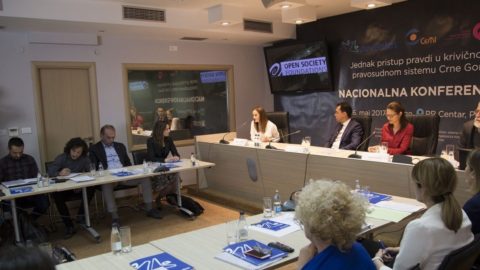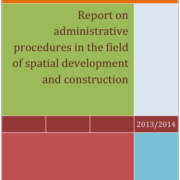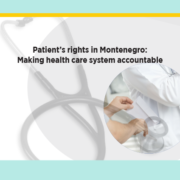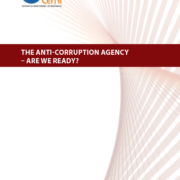The Centre for Monitoring, in cooperation with the OSCE Mission to Montenegro, under the auspices of the European Union held a round table “International obligations in prevention of torture and its implementation in Montenegro”. The round table was organized within the project “Strengthening the capacity of the Protector of Human Rights and Freedoms in Montenegro”.
Zlatko Vujovic, President of the Governing Board of the Center for Monitoring, Nicola Bertolini, and Marijana Laković, Deputy Protector of Human Rights and Freedoms in Montenegro gave introductory speeches, after which Tanya Norton, representative of the Association for the Prevention of Torture in Geneva, addressed the participants. In introductory speech the importance of establishing a National Preventive Mechanism in Montenegro and fulfillment of obligations that Montenegro assumed by signing the Optional Protocol to the Convention for the Prevention of Torture (OPCAT) were noted. The representative of office of the Protector put forward objections on a new proposal on the Law on the Ombudsman, which is currently in the approval process. Specifically, it was stressed that this law does not constitute an adequate basis for the implementation of the mandate in Montenegro, in terms of limiting the financial and functional independence, as well as the appropriate authority.
In the second part of the panel, the experience in the prevention of torture was presented by representatives of the Supreme Court, the Prosecution, Police: Mr. Ivica Stankovic, Mr. Rifat Hadrović Mrs. Ljulja Đonaj, and Director of the Institute for Execution of Criminal Sanctions in Spuž Milan Radovic. In this section the legal basis for the prevention of torture in Montenegro, as well as statistical data on processed cases of torture were presented.
Representatives of civil society organizations engaged in the monitoring and prevention of torture, spoke in the third part of the panel. Mrs. Tea Prelević-Gorjanec (HRA), Mrs. Tijana Pavicevic and Mr. Aleksandar-Sasa Zekovic (Human Rights Violation Researcher) presented information on specific cases of torture that were registered in Montenegro and presented their experiences in the implementation of projects which aimed at improving the system of prevention of torture in Montenegro.


 Montenegrin
Montenegrin








